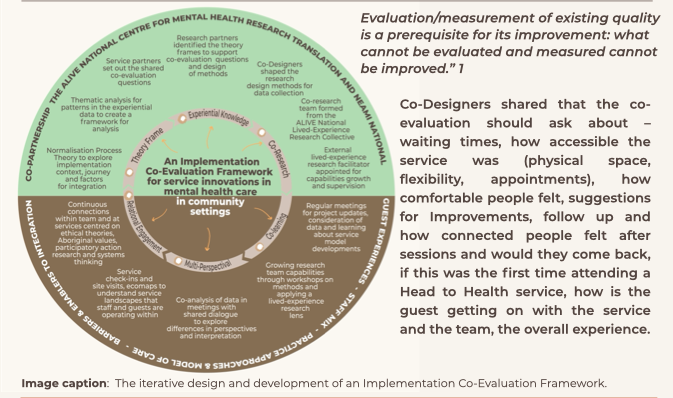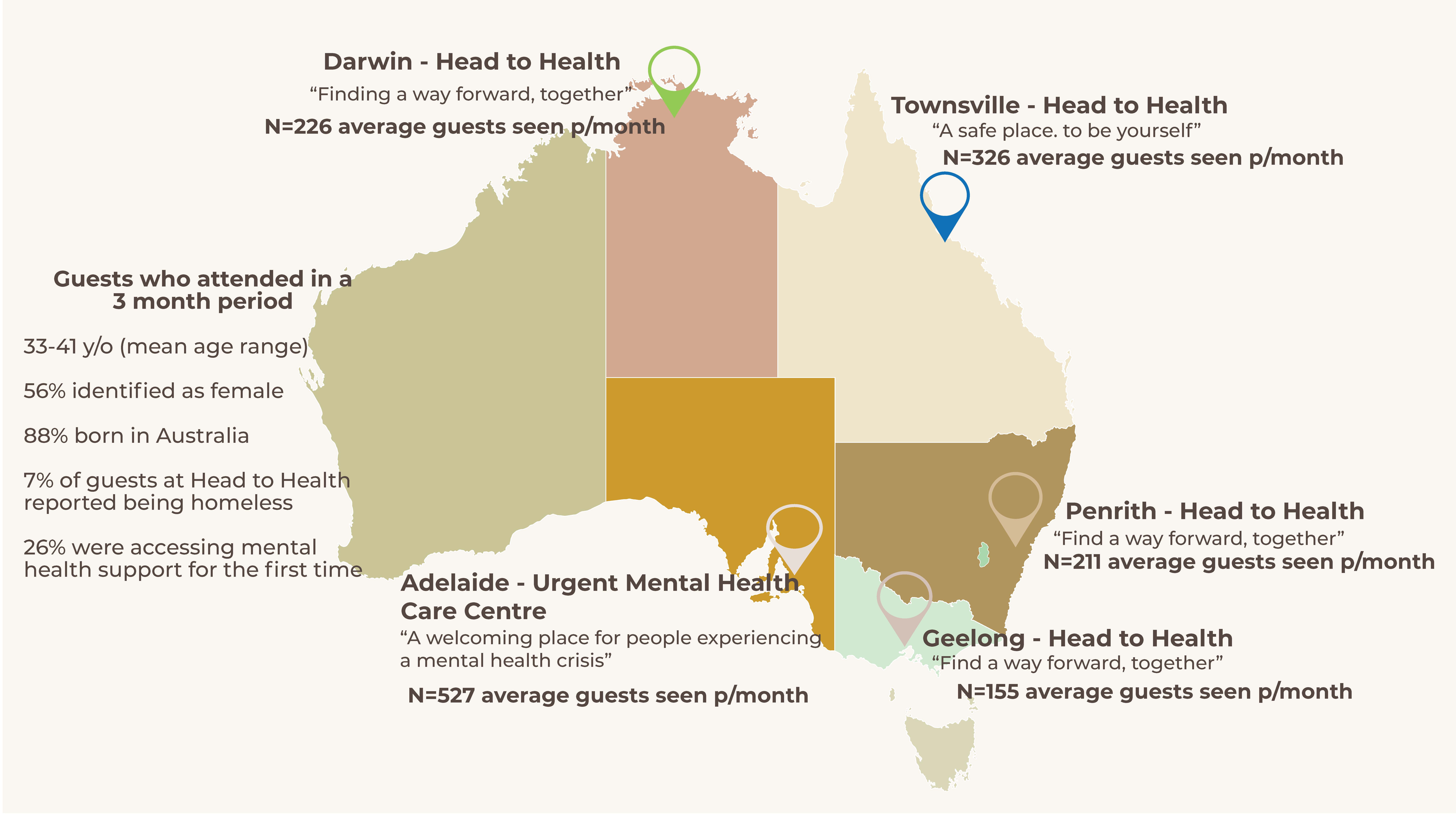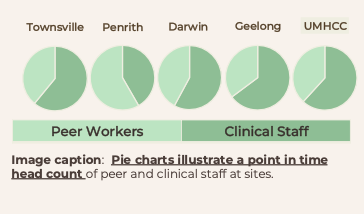Interested in our initiative? Submit your email to receive an invite to the alive collective.
Menu
Historically, mental health care in Australia has been highly medicalised, under-funded, and fragmented across settings and services. There are gaps in treatment pathways, with low-moderate needs mostly being addressed by General Practitioners (GPs), and more acute presentations and persistent mental ill-health being managed through secondary and tertiary care settings through psychiatry. The current structure of the mental health care system sees long wait times to receive care, substantial out of pocket costs, and limited to no specialist services in some regions. The system is not adequately designed to support people with distress or mental ill-health beyond the capacity of GPs to treat, but not of sufficient severity or acuity to be seen by specialist services.
As a response to these needs, the commonwealth government has funded 8 pilot Head to Health adult mental health services to “provide a safe and welcoming space for adults, their family and friends, who may be in distress or crisis, or need help finding the right mental health services for their individual needs.” (https://beta.headtohealth.gov.au/head-to-health-services)
There was one pilot Head to Health service established in each state and territory. Of these, five are run by Neami and their partners in 5 diverse Australian communities. These are Darwin, Penrith, Townsville, Geelong and Adelaide. Service provision commenced around the end of 2021. Currently the Head to Health Service model is expanding with new services being funded across the country, with the exception of Victoria which is developing a state-based adult mental health model as a response to the Royal Commission into Victoria’s Mental Health System.
The ALIVE National Centre has partnered with Neami National to conduct an implementation co-evaluation of the five Head to Health services they manage.
This project covers the establishment of a baseline understanding of the implementation, ongoing discussions with stakeholders on the progress of the evaluation, and an intensive three-month period of data collection from a range of stakeholders to inform the co-evaluation. This project aims to identify implementation facilitators and barriers and develop recommendations that will inform the implementation process of participating services and guide the implementation of new services using innovative models of care. The whole project will be conducted over a 12-month period.
What have we learned so far in this project?
Research Team:
Matthew Lewis, Michelle Banfield, Mark Loughhead, Jennifer Bibb, Phil Orcher, Hayley Purdon, Catherine O’Donnell, Ian Muchamore, Joshua Moorhouse, Anna Lampugnani, Pippa Featherstone, Dianna Smith, Melissa Petrakis, Konstancja Densley, Elise Dettmann, Caroline Tjung, Priscilla Ennals, Emily Castagnini, Victoria J Palmer.



ALIVE Next Generation Researcher Network Application Form Click here
For University based research higher degree students, early/mid-career mental health researchers
ALIVE Lived Experience Research Collective Application Form Click here
For University and community based lived-experience or carer-focused mental health researchers at all career stages
ALIVE Collective Application Form Click here
For any individuals or organisations with a general interest in supporting the special initiative in mental health
ALIVE Implementation and Translation Network (ITN) Application Form Click here
For sector, service delivery organisations in mental health serving people across the life course and priority populations
If you have a general enquiry about The Alive National Centre for Mental Health Research Translation, please submit an enquiry below